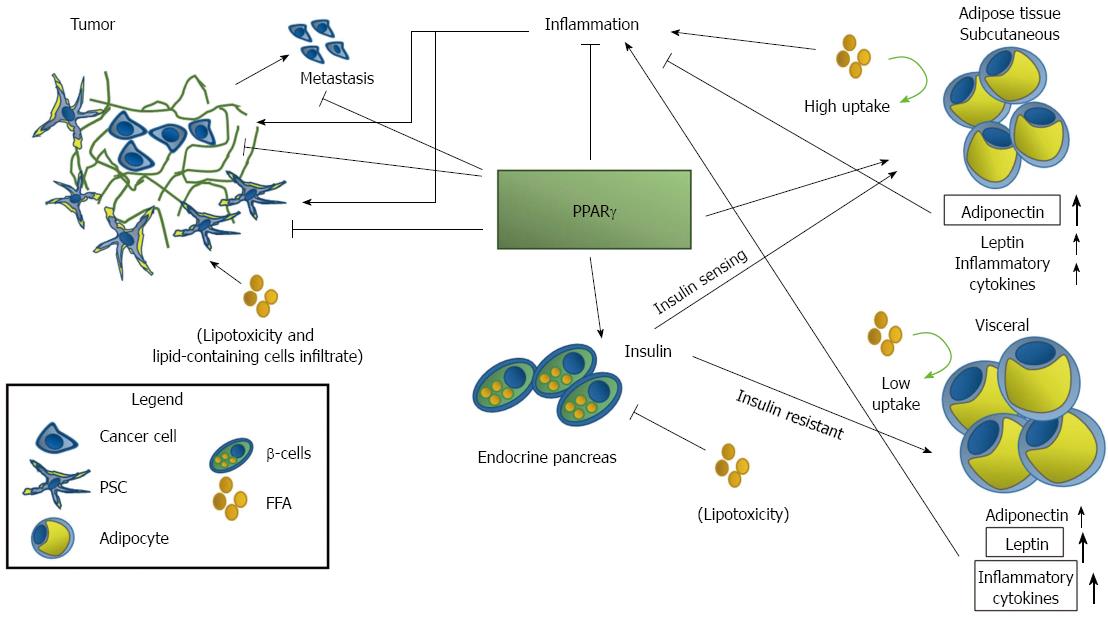Copyright
©The Author(s) 2016.
World J Gastroenterol. Feb 28, 2016; 22(8): 2441-2459
Published online Feb 28, 2016. doi: 10.3748/wjg.v22.i8.2441
Published online Feb 28, 2016. doi: 10.3748/wjg.v22.i8.2441
Figure 1 Effects of peroxisome proliferator-activated receptor-γ on diabetes, obesity, and pancreatic ductal adenocarcinoma.
The nuclear receptor PPARγ may directly inhibit tumor growth and metastatization and it is implicated in PSC activation. PPARγ activation may increase insulin secretion and production in β-cells, and may increase insulin-sensitivity in peripheral tissue. PPARγ induces differentiation of pre-adipocytes in new small adipocytes that are more insulin-sensitive and produce lower amount of inflammatory adipokines. Finally, PPARγ may directly and indirectly (modulating adiponectin and leptin levels) inhibit inflammation altering the level of adiponectin and leptin. FFA: Free fatty acids; PPARγ: Peroxisome proliferator-activated receptor-γ; PSC: Pancreatic stellate cells.
- Citation: Polvani S, Tarocchi M, Tempesti S, Bencini L, Galli A. Peroxisome proliferator activated receptors at the crossroad of obesity, diabetes, and pancreatic cancer. World J Gastroenterol 2016; 22(8): 2441-2459
- URL: https://www.wjgnet.com/1007-9327/full/v22/i8/2441.htm
- DOI: https://dx.doi.org/10.3748/wjg.v22.i8.2441









